Code of Ethics, Conduct and Compliance
Introduction
What compliance is?
Compliance means acting in accordance with a rule, an internal instruction, a command or an application, characterized by the set of actions and conducts designed to enforce the legal and regulatory norms, as well as the policies and guidelines established for the Law Firm, in order to obtain the real and effective compliance with the legislation that regulates the sector, whether it is corporate, labor or otherwise, that may affect the integrity of the Law Firm.
The expression Compliance comes from the English language (to comply) and refers to the meaning of acting according to a command/rule. Compliance practices are of American origin, set forth in the Foreign Corrupt Practices Act – FCPA, known as the North American Transnational Anti-Corruption Act.
In 2013, Brazil issued Law 12846/2013 (“Anti-Corruption Law”), which provides for the administrative and civil liability of legal persons for the practice of acts against the Government, whether national or foreign.
The Anti-Corruption Law and its regulations have also established the mechanisms and tools that the legislation considers capable of characterizing an effective Compliance Program.
It is worth remembering that Law Firms, when hired by their clients, must make the necessary efforts for the success of their clients, and must always act within the legal and ethical limits. Therefore, the demands before the Judiciary, as well as before the Government (Regulatory Agencies, Local Authorities, Environmental Agencies and etc.) demand to the Law Firm a constant relationship with Public Agents, bringing even more to the surface the necessity of implementation of a Compliance Program.
Always seeking to improve its services, values, internal relationships, with clients and with society in general, the Office has worked with the objective of consolidating itself as a reference in providing high quality and complex legal services, without ever abandoning ethics as the first value to mark all of its actions. The results achieved to date leave no doubt about the excellence of work and the respectability achieved in the market. Thus, this Code is written with the purpose of systematizing and promoting the ethical values already adopted and with which all employees commit themselves at the moment of internal disclosure.
BASIC ETHICAL PRINCIPLES OF BASILIO ADVOGADOS
1 . Honesty, integrity, and loyalty translate into dignified and honorable behavior, both inside and outside the office. It is about being loyal and true in all its relationships with colleagues, clients, competitors, suppliers and society, including agents of the Government, as well as to meeting its commitments made before any person, never using sneaky or illegal means to achieve professional goals.
Such value also means to repudiate any practice of acts of corruption or fraud, strictly subject to the rules and ethical standards of law and good conduct, provided for in the Statute of Law Practice, in the OAB Code of Ethics and Discipline, in Federal Law 12846/13 and all the legislation that governs the matter.
2. The valuation of the human person is a fundamental principle, translating into attention to human issues, ensuring a balanced and harmonious working environment, absolute prohibition of practices of moral and sexual harassment, as well as any type of discrimination.
3. Responsibility towards clients translates not only into quality work and the achievement of results, but also in maintaining a respectful and dignified relationship, never allowing internal conflicts and personal issues to interfere with the achievement of the purpose of better client service.
4. Profitability and fair compensation is the result of work, but not an end in itself. It should be avoided any kind of waste of goods and values, whether from the office or the clients.
5. Teamwork consists in directing your effort for the benefit of the whole, providing all the information you have in a timely manner and assisting those in need.
6. Information Security consists in the absolute attention to the confidentiality of the information entrusted to the office, maintaining with the clients the trust necessary for the practice of the law. The Office’s Information Technology policies should be fully met.
In view of the aforementioned ethical principles, as well as all other universal principles, whether or not provided for in this Code, the Bylaws as well as the applicable legislation, we highlight the other recommendations and commitments that the Office considers to be priorities in the pursuit of ethical scope of our activities:
1. Gifts and Hospitality – Any employee of the office is prohibited from offering or receiving gifts, hospitality, pecuniary values or benefits from any kind of clients, current or potential suppliers and public agents generally defined as any person that hold an office or function in bodies or entities of the Government, whether national or foreign, direct or indirect in all spheres, except when the offer or receipt is institutional, if it is in a reasonable value and fit the compliance policies of the recipients or addressees, as applicable.
The doubts regarding the possible acceptance or offer of gifts can be solved with the Management Team, responsible and guardian of the norms and policies of compliance of the office.
2. Relationship – The employees of the office shall inform the Management Team of any direct or collateral relationship, by consanguinity or affinity, up to the third degree with a person holding a position of trust, management or senior management function of any body or entity of the Government, whether direct or indirect, at all levels of the Federation.
3. Undue Advantages – Employees are prohibited from taking advantage of the institutional or commercial relationship with Office’s clients, as well as using the name of the Office to obtain undue benefit.
4. Conflict of Interests – Any new, imminent or potential case of a contentious or advisory nature should, in order to verify conflict of interests, be submitted before the evaluation of the managing partners and the Management Team, as well as inserted in the computer system for this purpose.
5. Relationship with third parties – Employees dealing with suppliers should encourage their compliance with the Office’s institutional principles and always evaluate the preference, when possible and appropriate, of hiring partners with effective compliance practices.
Employees have the duty to inform the Management Team of the filing of any action in their own name against an Office’s client. Likewise, the rendering of individual legal services to individual clients and not belonging to the Office’s client database should be subject to evaluation by the Management Team in order to avoid conflicts of interest with the Office’s clients and with the legal theses defended.
OMBUDSMAN CHANNEL
In the event of an effective or suspected violation of any of the precepts set forth herein, we recommend sending a complaint to the Management Team or to the following email: ouvidoria@basilioadvogados.com.br, containing, among other information: i) brief facts; ii) the names of those involved, whether or not members of the Office; iii) date of the event. Confidentiality is guaranteed, if the complainant so wishes.
Upon receipt of the complaint, the Ombudsman shall have a period of 15 (fifteen) days, extendable for the same period, to adopt, in compliance with the legal limits of its action, all investigative measures that it deems appropriate and necessary, informing the complainant.
The management team is independent, not being composed of managing partners, and with the support of HR, it shall apply any penalties. In the case of partners, any proposed exclusion of the company will be submitted by the Management Team to the managing partners.
If the complaint involves a member of the Management Team, the managing partners shall appoint another member to determine the situation in question.
FINAL PROVISIONS
The rules provided for in the Bylaws, which refer to ethical issues and values, are complementary to the provisions herein, which are never in conflict.
